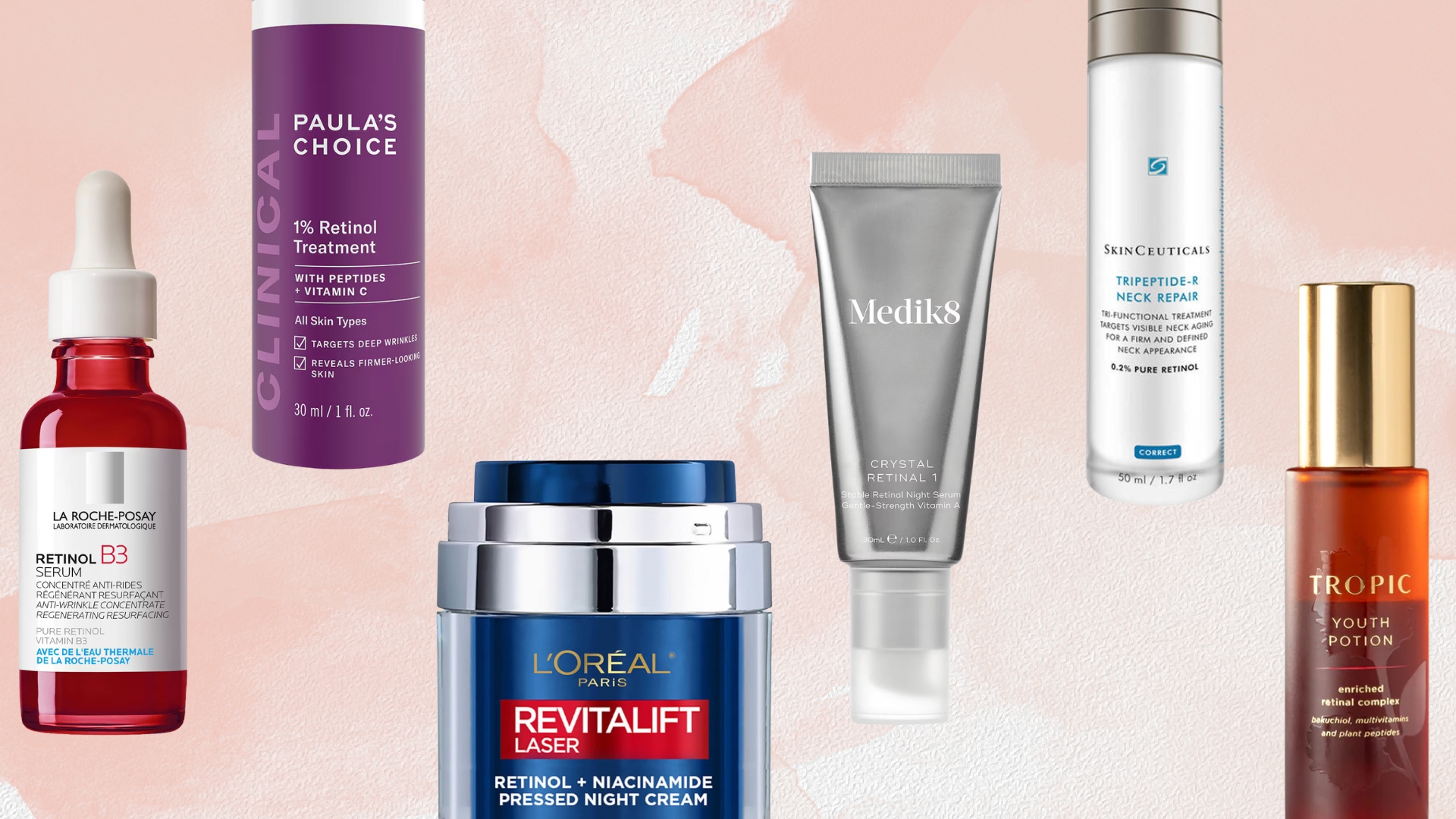
HEADLINE - The 9 best retinol creams and serums worth adding into your daily routine
Incorporating one of the best retinol creams or serums into your daily skincare routine is the secret to unlocking a smoother, clearer and brighter complexion.
You've most likely seen the word 'retinol' being thrown around or perhaps even stocked on the shelves of your local beauty retailer, especially in recent years. Although hugely popular for its ability to minimise the appearance of fine lines, keep blemishes at bay (and much more), it can be tricky to know how to use retinol when you're not exactly sure what it is. "Retinol is a derivative of vitamin A, and one of the most widely researched and proven skincare ingredients available today," explains Facial aesthetics expert and oculoplastic surgeon Dr. Maryam Zamani.
It's no surprise that this skincare ingredient has amassed popularity, Dr. Zamni adds: "It is a powerhouse vitamin that promotes cell turnover, diminishing the appearance of fine lines, wrinkles, uneven skin tone, and blemishes. It is also an important topical used in treating acne and decreasing sebum production." So, we've scouted out the very best retinol creams and serums to help you find 'the one' - and quizzed the experts on how to use them safely...
The 9 best retinol products, according to our beauty team
Over the years, we've tested dozens of vitamin A skincare formulas, from night creams to bespoke serums. So, it's only natural that we curated a list of the top nine to leave us with a positive impression - with options to suit everyone, from retinol newbies to those who's skin is already adjusted to the powerhouse ingredient.
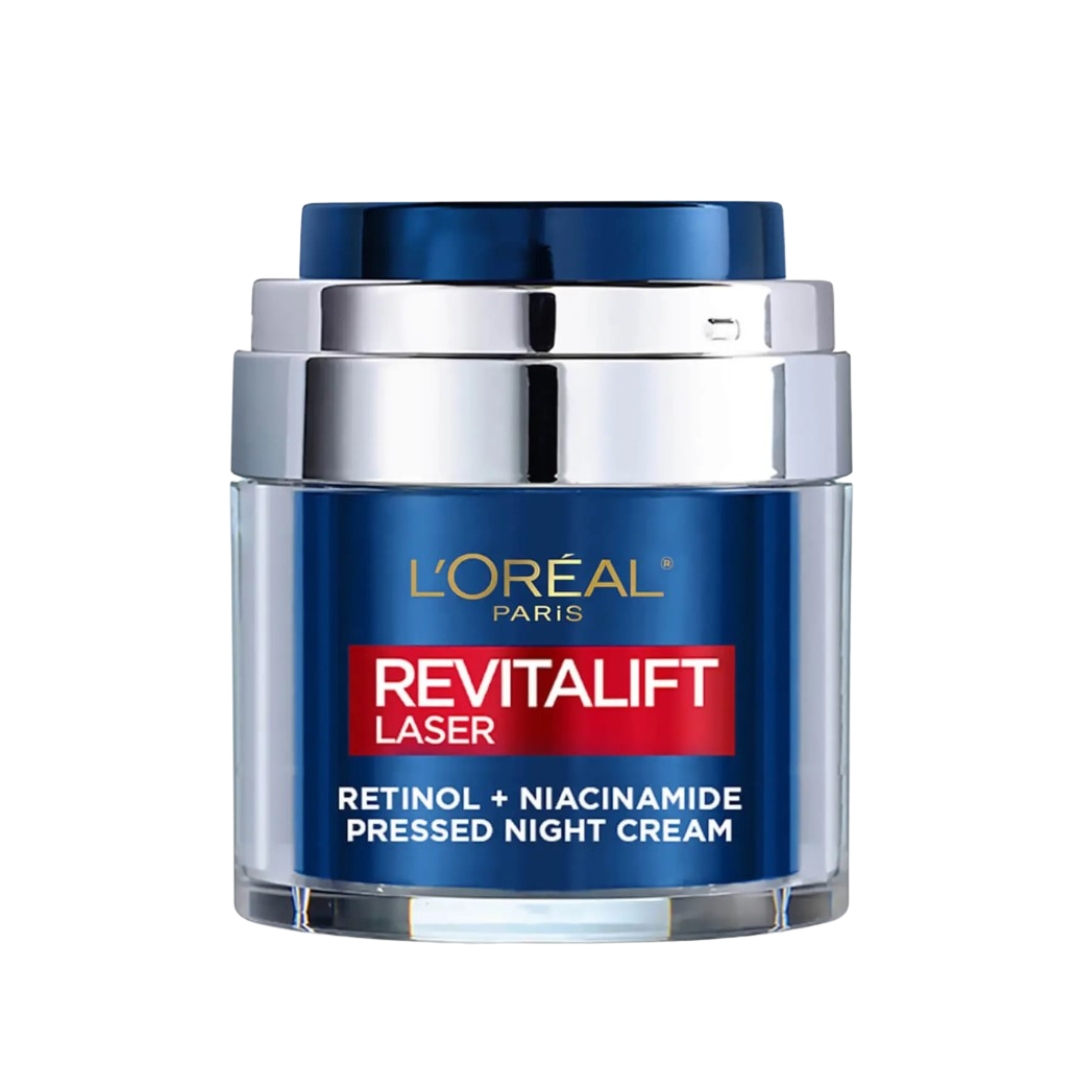
RRP: £29.99 for 50ml | Type: Night Cream: | Ingredients: Pure retinol, retinyl palmitate, niacinamide and glycerin
There is so much to love about this retinol cream, but let's start with the most important thing in any skincare product—the ingredients. This expertly blends powerful skin-improving stuff, namely pure retinol plus an ester (retinyl palmitate) with gentler skin-brightening and oil-regulating niacinamide, plus moisturising and soothing things like hyaluronic acid and glycerin. It manages, unusually to pack all of this goodness into what feels like a pleasant, normal night cream texture with no chemical smells (although it is lightly fragranced, which may not suit everyone.) As with any retinol you're advised to build usage up from every few days to nightly use.
Reasons to buy: Boasts two forms of retinol, both moisturises and treats the skin
Reasons to avoid: Lightly fragranced
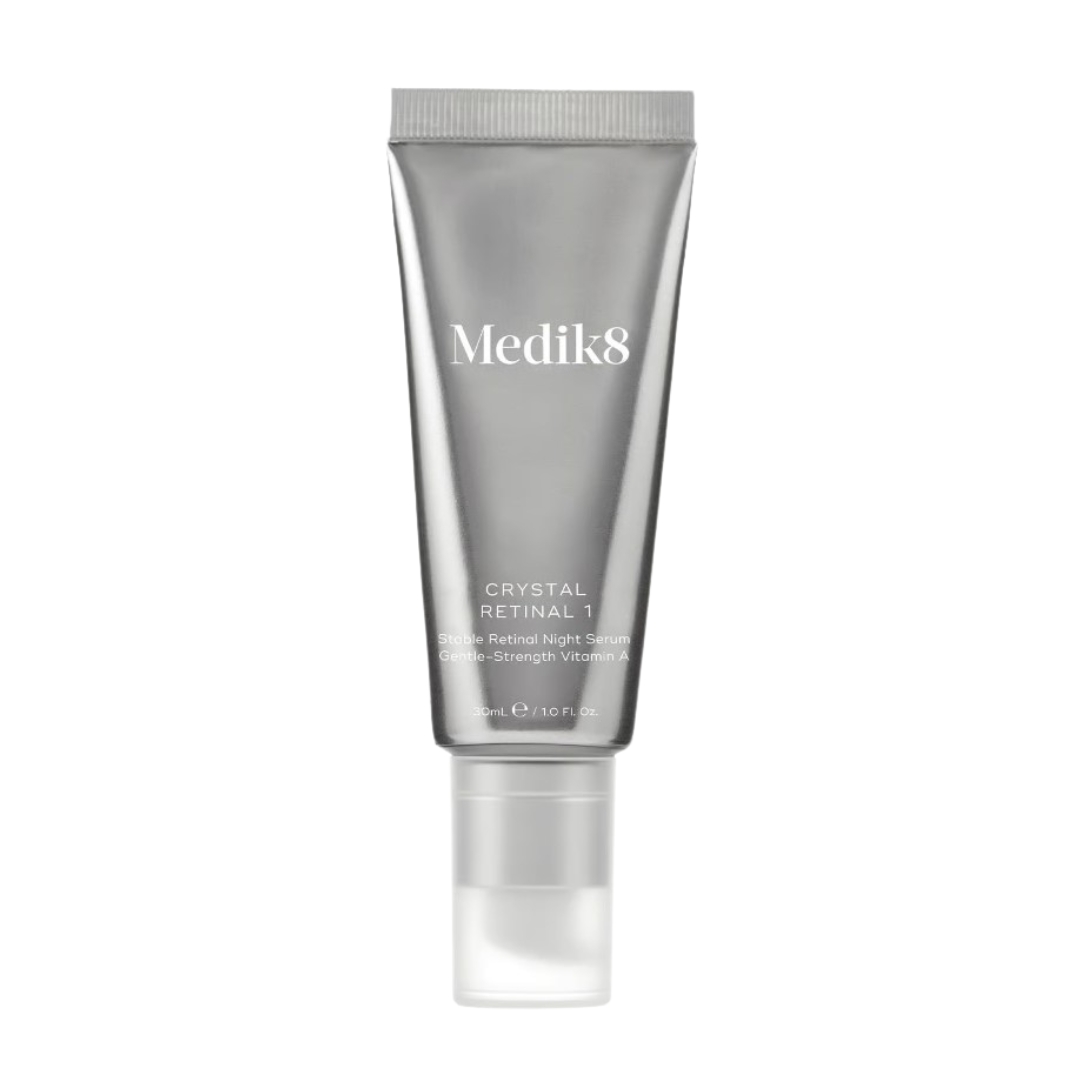
RRP: £45 for 30ml | Type: Cream | Ingredients: Retinal, hyaluronic acid and vitamin E
Medik8's Crystal Retinal 1 is a great option for retinol beginners, as it's a stable, gentle retinol cream that should be suitable for even sensitive skin. If you and your skin are happy with this and want to progress, then move up to the next strength for your next tube. As well as taking the worry out of building up a tolerance to this powerful ingredient, the products are lovely too—they have a creamy, spreadable texture that only gets a little on the thicker, yellower side as you work up to 0.03%, 0.06% strength and beyond. Not to mention, the Medik8 Crystal Retinal 1 is contributing beauty editor, Lucy Abbersteen's most reused beauty product thanks to its skin-smoothing capabilities.
Reasons to buy: A gentle beginner option, which features humectant hyaluronic acid and soothing vitamin E, and has a pleasant texture
Reasons to avoid: It gets pricier at higher strengths
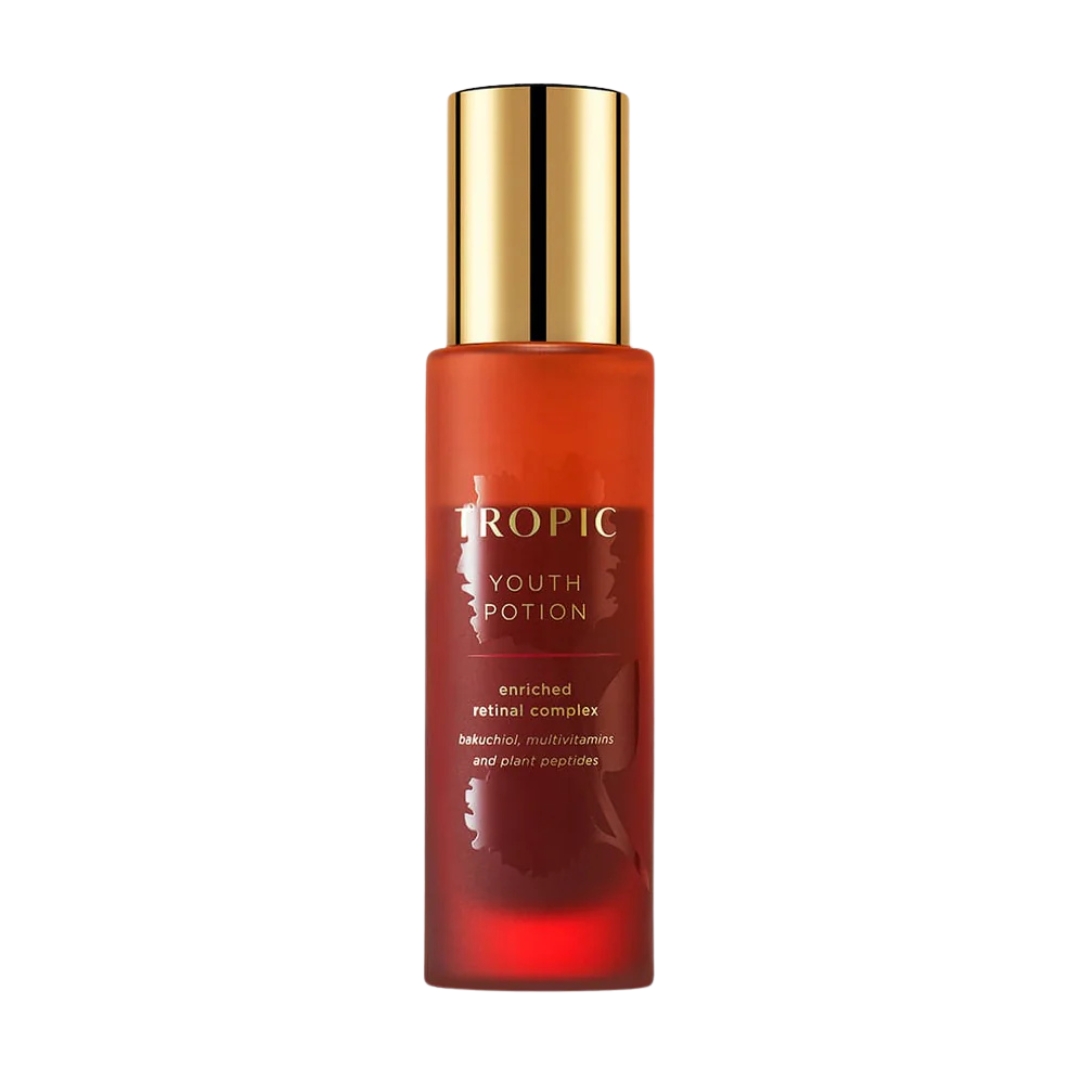
RRP: £78 for 30ml | Type: Serum | Ingredients: Advanced marine retinal, plant peptides, bakuchiol and Coenzyme Q10
Dubbed the world's first certified natural retinal, this clever hybrid formula boasts a nourishing oil on top and a supercharged serum underneath, which is designed to deliver powerful results, without causing any irritation. In fact, Tropic's Youth Potion is loved by our digital beauty writer, Sennen Prickett, who hails its kind-to-skin formula for not irritating her typically sensitive complexion. She notes: "Despite other retinoids causing my skin disruption, I was surprised that my skin lapped this formula up. I didn't experience any breakouts or dryness, instead my skin felt plumper, smoother and more radiant. Not to mention, less noticeable texture, redness and post-blemish scarring."
Reasons to buy: Great for sensitive skin and skin that can't tolerate retinol
Reasons to avoid: If you're not particularly fussed about natural formulas
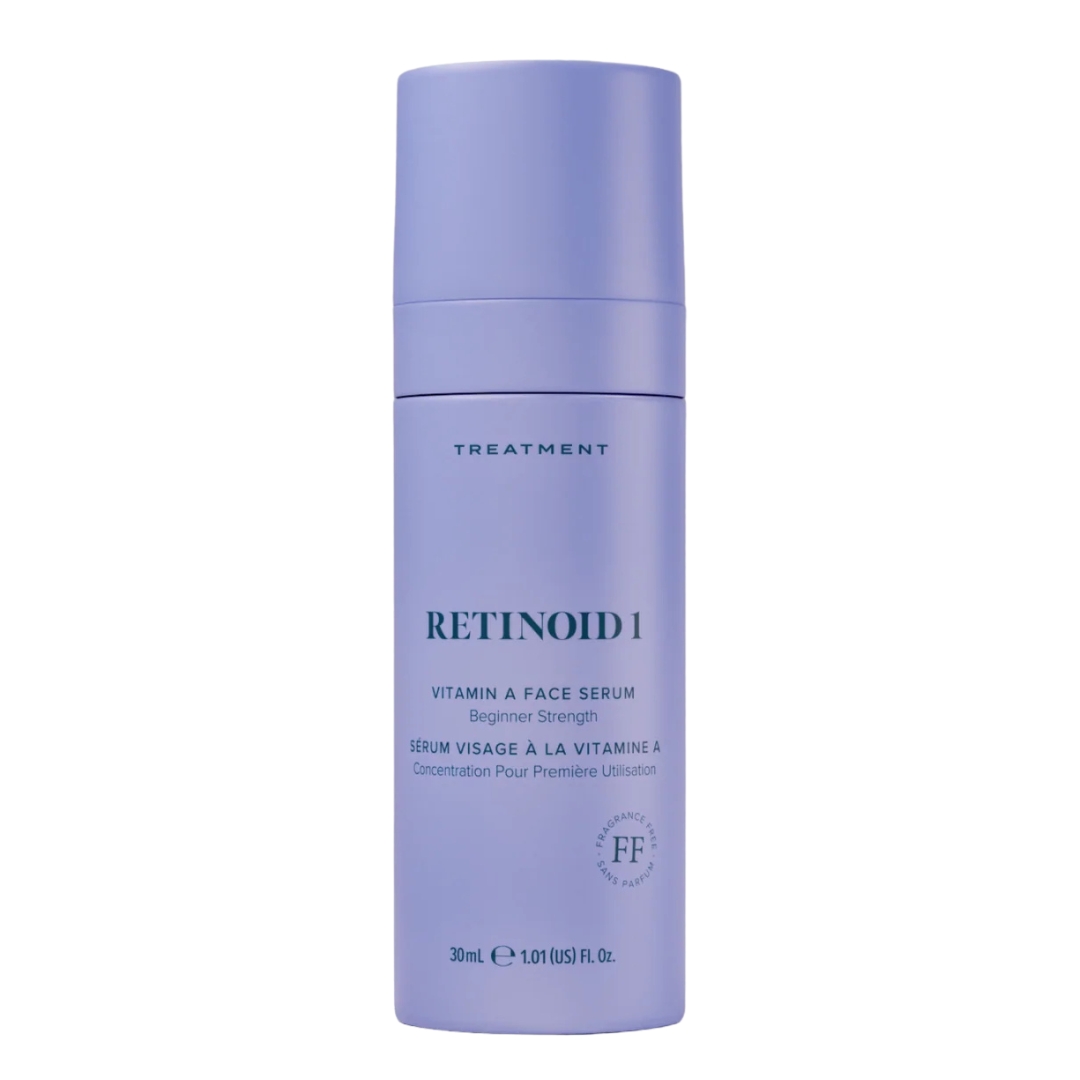
RRP: £65 for 30ml | Type: Serum | Ingredients: Bakuchiol, soybean extract, squalane and vitamin E
The retinoid here is actually hydroxypinacolone retinoate, rather than retinol, also known as granactive retinoid. Without getting too into the science, it's an ester of retinoid acid (stay with us), which is the form of vitamin A our skin "uses". The need-to-know bit is that our skin is said to recognise it in the same way, meaning it gets to work quickly and usually without irritation. It also happens to have contributing beauty editor Lucy Abbersteen's seal of approval. "I love the texture of this serum; it's nice and lightweight, not at all greasy and plays well with other products," she says. "I think it's a great choice for those who are newer to retinol and its family members – as a seasoned retinoid user I'm a Retinoid 2 girl, but those newer to retinol and its vitamin A family members should go for Retinoid 1."
Reasons to buy: If you're new to the world of retinol or have a irritable-prone complexion
Reasons to avoid: If you're not looking for a product that requires an investment
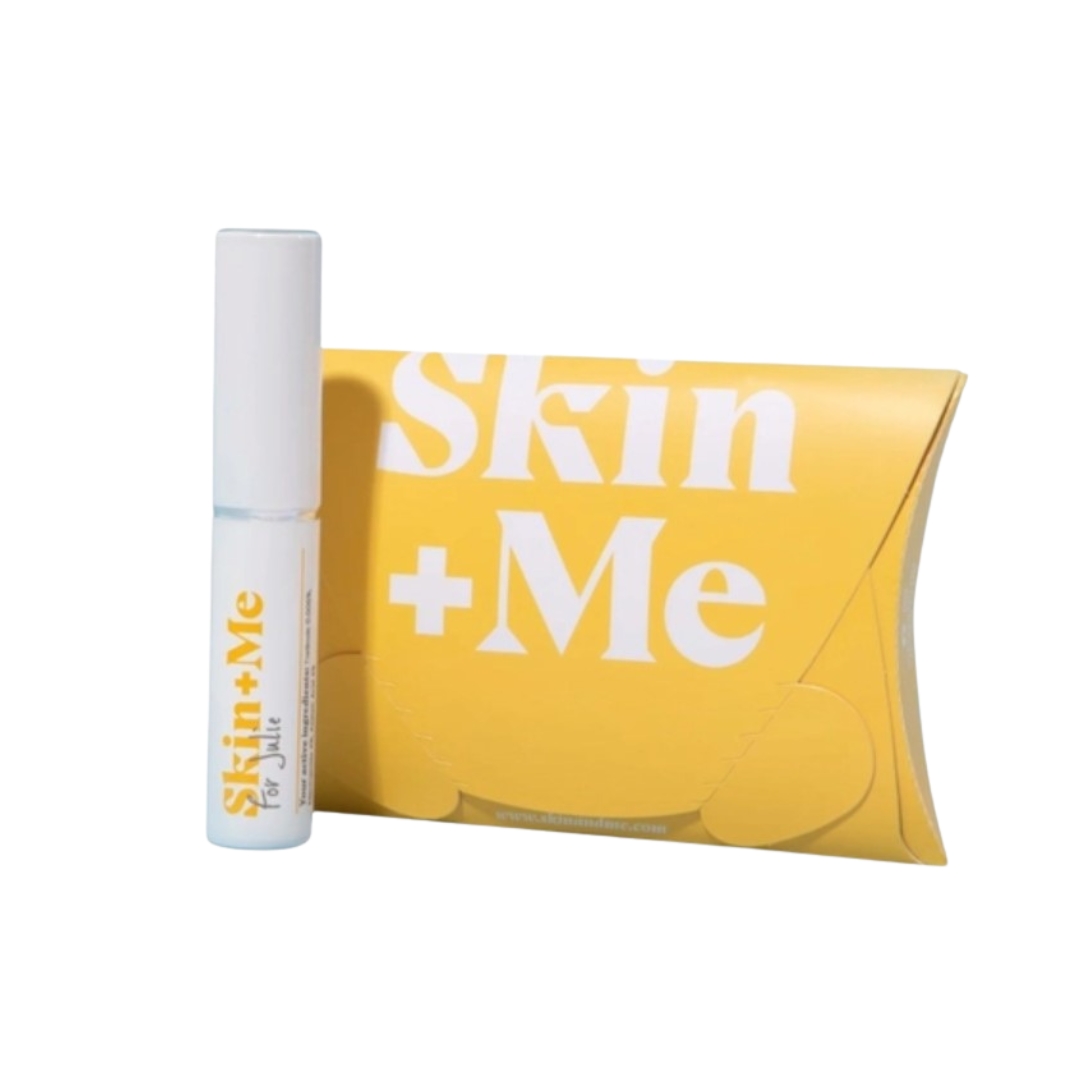
RRP: £19.99 | Type: Personalised skincare | Ingredients: Usually tretinoin, although this is bespoke
Let us caveat this by first saying that if you have severe, persistent acne or another skin concern that's having an impact on your confidence, a visit to the GP is needed. However, if you have mild to moderate skin concerns and a derm appointment is not possible, Skin + Me is the next best thing.
Offering personalised skincare, based on an assessment by the brand's team of dermatologists, this is a great option for those who need support or advice on their skin's needs. Naturally, the ingredients depend on your skin, but as long as you're a suitable candidate you can bet tretinoin, aka prescription-strength retinol, will be in there, starting with a very low dose so you can build tolerance. The formula is delivered in an airtight aluminium 'daily doser' that contains exactly one month's supply.
Reasons to buy: Prescription-grade retinol and is customised to your needs
Reasons to avoid: Subscription service only
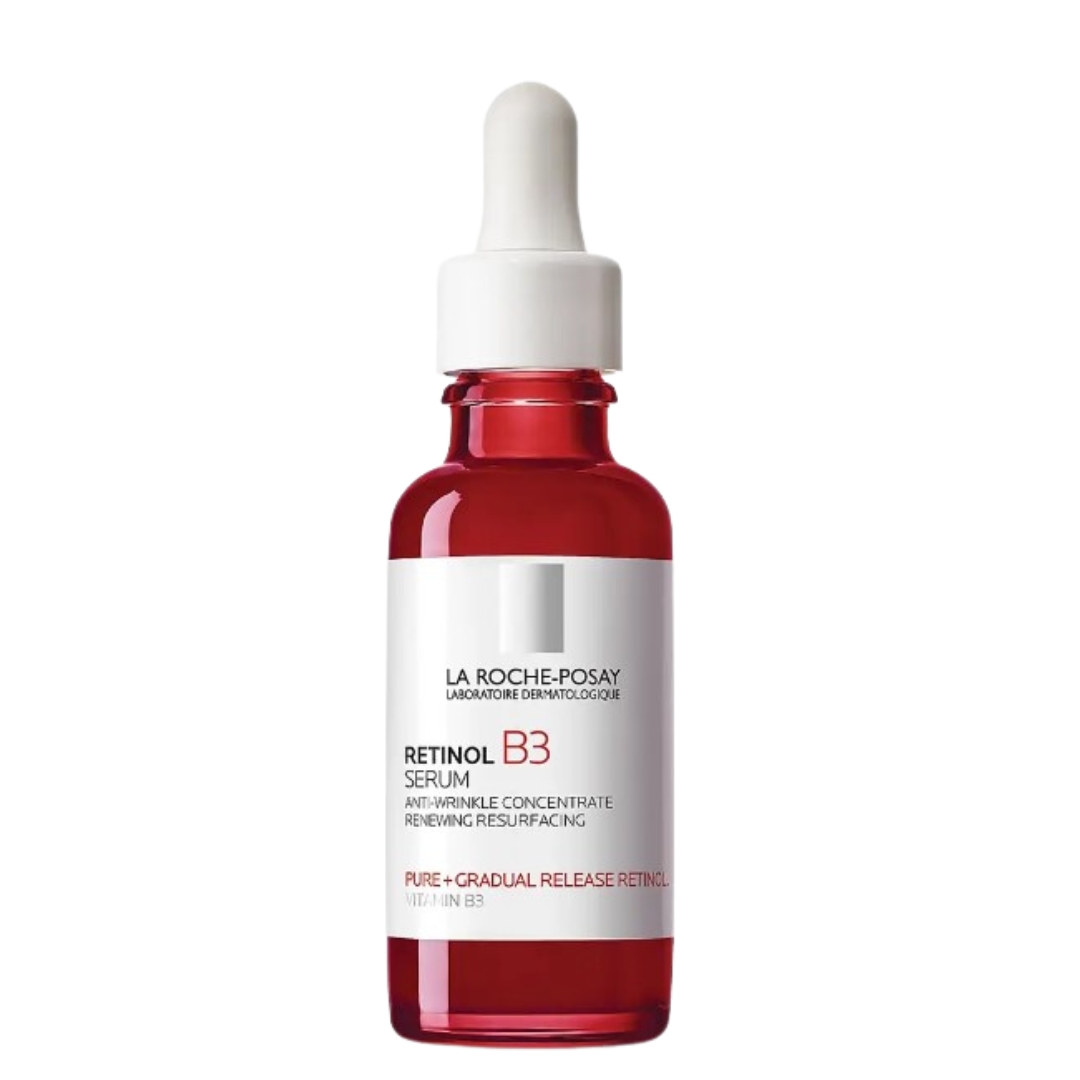
RRP: £48 for 30ml | Type: Serum | Ingredients: Retinol, vitamin B3 and glycerin
If your skin finds heavy-duty ingredients difficult to tolerate, try this slow-release retinol serum. It contains pure retinol, but in a gentle 0.3% strength and works just as the name suggests. So instead of bombarding your skin in one go, it gently drip-feeds it over a longer period. We loved the lighter texture of this, as it looks and feels like a nice hydrating serum, with a bit of youth-boosting action on the side. Plus, Vitamin B3 and glycerin help counteract potential dryness by restoring the skin barrier and topping up hydration levels.
Reasons to buy: It has a silky texture, a little goes a long way and is suitable for sensitive skin
Reasons to avoid: It can take a while to see results
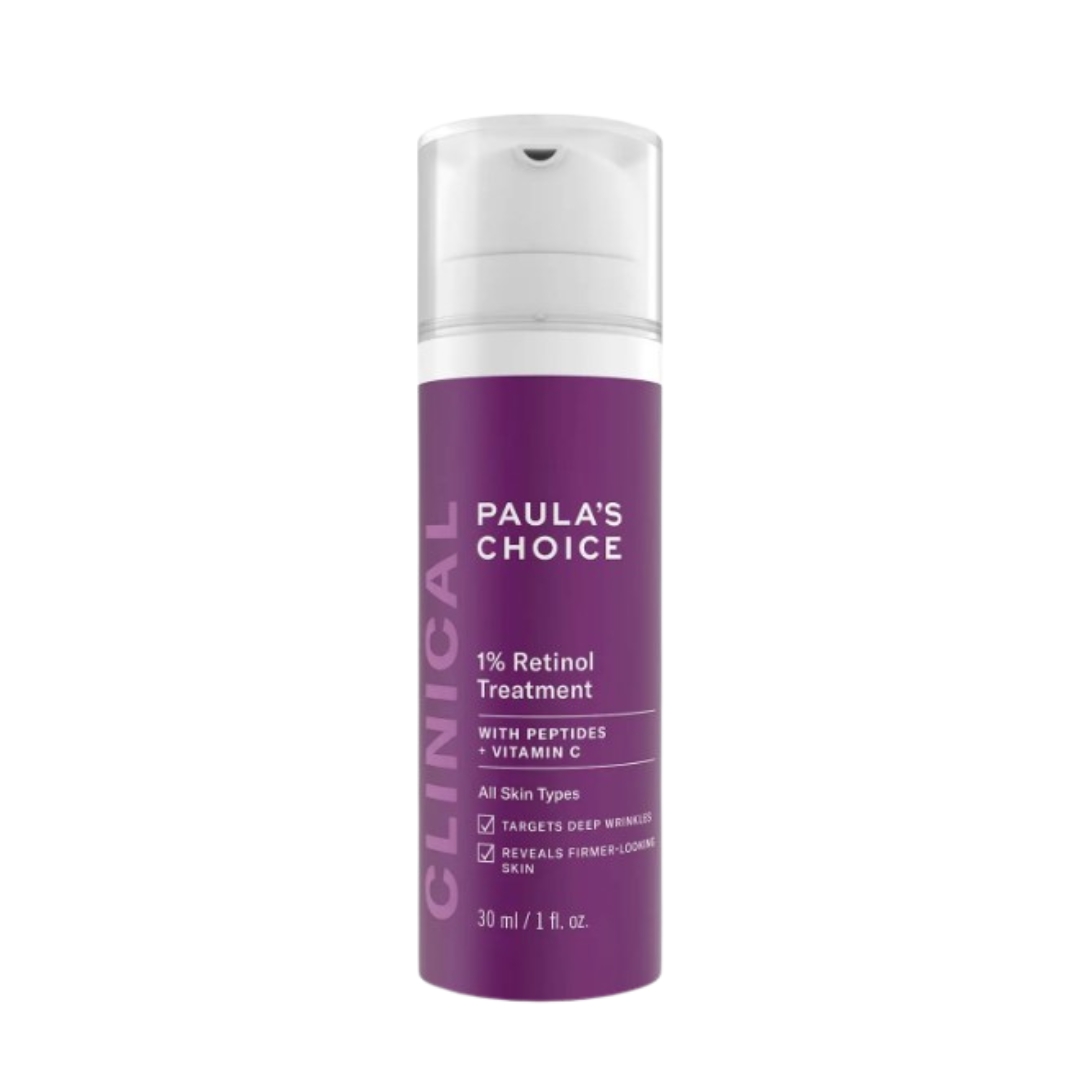
RRP: £59 for 30ml | Type: Treatment | Ingredients: Retinol, peptides, liquorice root extract
This retinol and peptide treatment works on multiple levels thanks to a heavyweight formulation combining a high dosage of pure retinol (1%) plus gentler but still effective brightening extracts. If your skin bugbear is hyperpigmentation, retinol is an effective solution. By speeding up cell turnover to reveal fresh cells, dark spots on the skin's surface can be reduced. This particular retinol serum is lightweight and a joy to use, absorbing quickly with no tingling.
Reasons to buy: Keeps breakouts and pigmentation at bay, impressive results
Reasons to avoid: Very powerful, requires a slow build-up
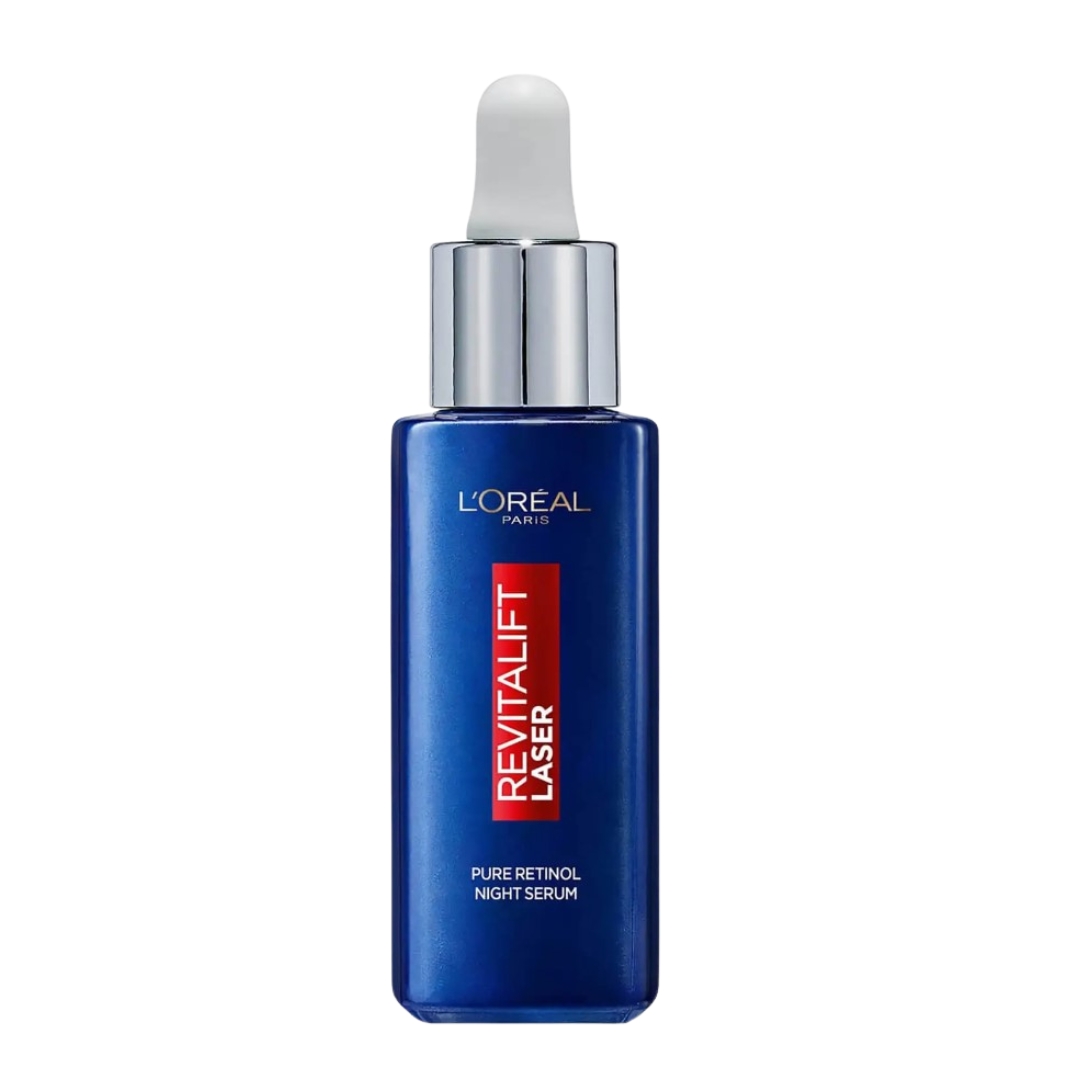
RRP: £29.99 for 30ml| Type: Serum | Ingredients: Retinol and hyaluronic acid
Want to dip your toe into retinol without a hefty price commitment? We get it, not everyone's skin gets on with this ingredient, which is why this purse-friendly retinol serum is a great shout. It's made with patent-pending, ultra-stable pure retinol as well as plumping hyaluronic acid in a clever UV-proof pipette. So if you were debating whether to use hyaluronic acid vs retinol, there's really no need to choose. It feels light and pleasant to apply, and we experienced no reactiveness whatsoever on testing.
Reasons to buy: Very affordable, nice texture and hydrates
Reasons to avoid: Can take a while for your skin to adjust
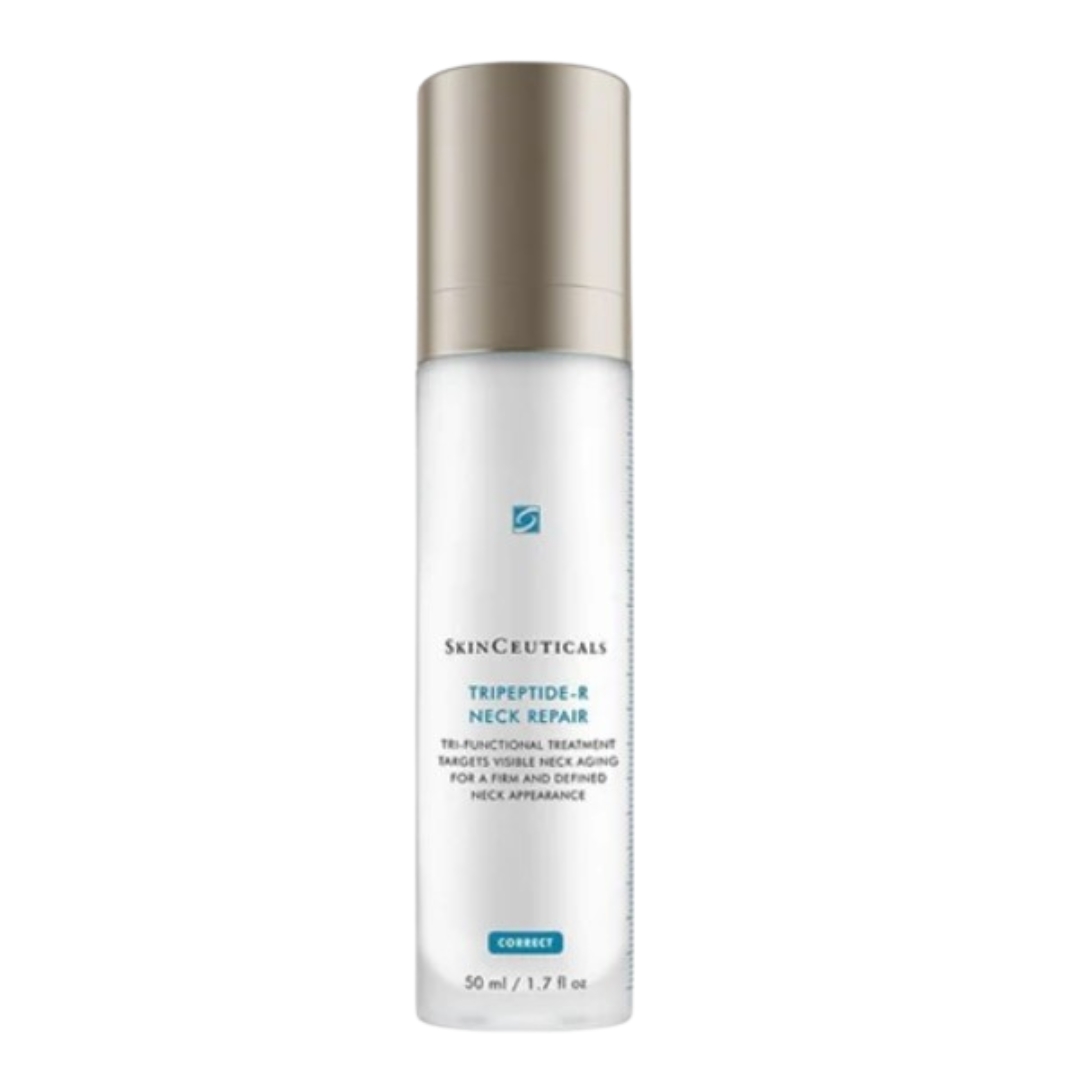
RRP: £128 for 50ml | Type: Neck cream | Ingredient: Retinol and peptides
The neck is often left out of our skincare routine, and yet it is often just as exposed as our faces are to elements such as UV and pollution so can take the brunt of visible ageing. So, if you fancy treating your neck to some retinol goodness, Skinceuticals have designed this with a slightly lower dosage than they would for the face, using 0.2% pure encapsulated retinol that is released steadily into the skin. They've also included peptides, which work to re-energize ageing skin without irritation. It is gentle enough for everyday use, but if you are sensitive we’d still recommend starting slow and building your tolerance week by week.
Reasons to buy: Formulated especially for the neck and works gently, using high-tech ingredients
Reasons to avoid: High price tag
How we tested the best retinol creams and serums
To whittle the best retinol creams and serums down to this curated edit of nine buys, we tried and tested a plethora of vitamin A formulas in order to scout out the buys worth investing in. We continuously used each formula for a prolonged amount of time, so we could clearly analyse the evident results. We also tested the lineup on a variety of different skin types. As we were trialling the products, we also made sure to keep the following key factors in mind.
- Type of formula
- Key ingredients
- Suitable for which skin types
- Price
- Volume of product
How to choose the best retinol creams and serums
"Retinol is a good ingredient to incorporate into your routine because it is probably the most studied skincare ingredient, which we know delivers results backed by science," explains GP and holistic aesthetics doctor Dr. Rabia Malik. "It is the first vitamin approved by the USA’s Food and Drug Administration (FDA) as an ‘anti-wrinkle’ agent."
So, if you're looking to add this ingredient to your beauty arsenal, picking the best retinol cream, or the best night serum including retinol if you prefer lighter textures, begins with understanding the distinctions between types of retinol. This in turn determines the answer to how often should you use retinol and whether you experience side effects or see dramatic results.
Feeling confused about retinoid vs retinol? Dr. Malik's classifications will help:
- Tretinoin: Weighing up retinol vs tretinoin? Tretinoin (all trans-retinoic acid) is the most bioactive form of topical vitamin A. It requires a prescription and is usually used to help manage acne and also some forms of pigmentation (if you are interested in this ingredient, give our Skin + Me review a read)
- Pre retinol: is the most frequently used form of vitamin A in cosmeceuticals because it is stable and usually well tolerated. However, it comes in different percentages and formulations, so I would recommend starting with a lower percentage and slowly building up.
- Retinal: is the oxidized form of retinol. It is stable and well tolerated but may not be as effective. Again, this depends on the concentration used and the formulation of the product.
- Retinyl esters: such as retinyl palmitate and retinyl acetate, are commonly used in cosmeceuticals as they are very stable, but they need to be converted to retinol, and then into retinoic acid to be effective. So there is decreased effectiveness of anti-wrinkle properties compared with retinol and retinoic acid.
Your retinol FAQs, answered
How does retinol work on the skin?
As you might have already gathered, the best retinol creams are impressive and efficient multi-taskers. Retinol works in a number of different ways to improve the quality of your complexion.
“With age, skin’s natural cell turnover decreases resulting in dull, uneven skin tone and rough skin texture,” says Dr. Zamani. “Topical retinol creams help promote turnover of surface cells, which means dead skin cells are sloughed away faster, revealing visibly healthier and brighter skin. Similarly, this mechanism helps improve the appearance of blemishes by preventing dead skin cells from clogging pores.”
To help plump and smooth sagging, crepey skin, “retinol reactivates our organic collagen production and simultaneously targets the enzymes that break it down,” explains expert dermatologist Dr. Dennis Gross. “Thus, when delivered properly, retinol increases cellular turnover and treats premature signs of aging.”
Due to the potency of vitamin A, it’s not uncommon to experience some small-scale side effects. “Dryness, irritation, redness and sun sensitivity can occur when using a high concentration of retinol,” advises Dr. Gross. “A tip to avoid sensitivity and irritation is to pair retinol with an all-physical SPF of 30-50. This is just another reason why regular SPF application is so important, as well as defending our skin from irritation, premature signs of aging, hyperpigmentation and skin cancer.”
What is the best retinol cream or serum?
There are an array of quality retinols available on the market, of which can be found in this very guide, however deciding which retinol buy takes top spot ultimately lies with whichever formula works best for you and your skin type. While we chose the L'Oréal Paris Retinol & Niacinamide Night Cream as our top pick, those new to retinoids may be better suited to the Skin Rocks Retinoid 1. Alternatively, those with sensitive skin types may prefer to opt for La Roche-Posay's Retinol B3 Serum.
We must also give credit where credit's due, as we tried a range of stellar formulas that didn't quite make the cut. For example, Tatcha's Silk Serum, which is a retinol alternative designed to smooth the skin, without causing irritation. Additionally, Kate Somerville's Mega-A Serum, which is a clinical-grade retinal that works to hydrate, smooth and boost the skin's radiance.
What is the difference between retinol and retinal?
While they're spelt incredibly similarly, there's actually a fairly big difference between retinol and retinal. Both are forms of vitamin A, however retinal boasts a stronger potency, which means you're likely to see noticeable results in a faster time period. That said, there's a higher potential that you'll also experience irritation with these formulas.
woman&home thanks Dr. Maryam Zamani of MZ Skin, Dr. Dennis Gross of Dr. Dennis Gross Skincare, and Dr. Rabia Malik of Skin W1 for their time and expertise.







